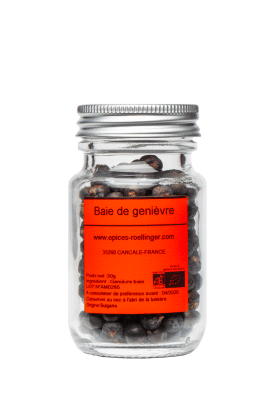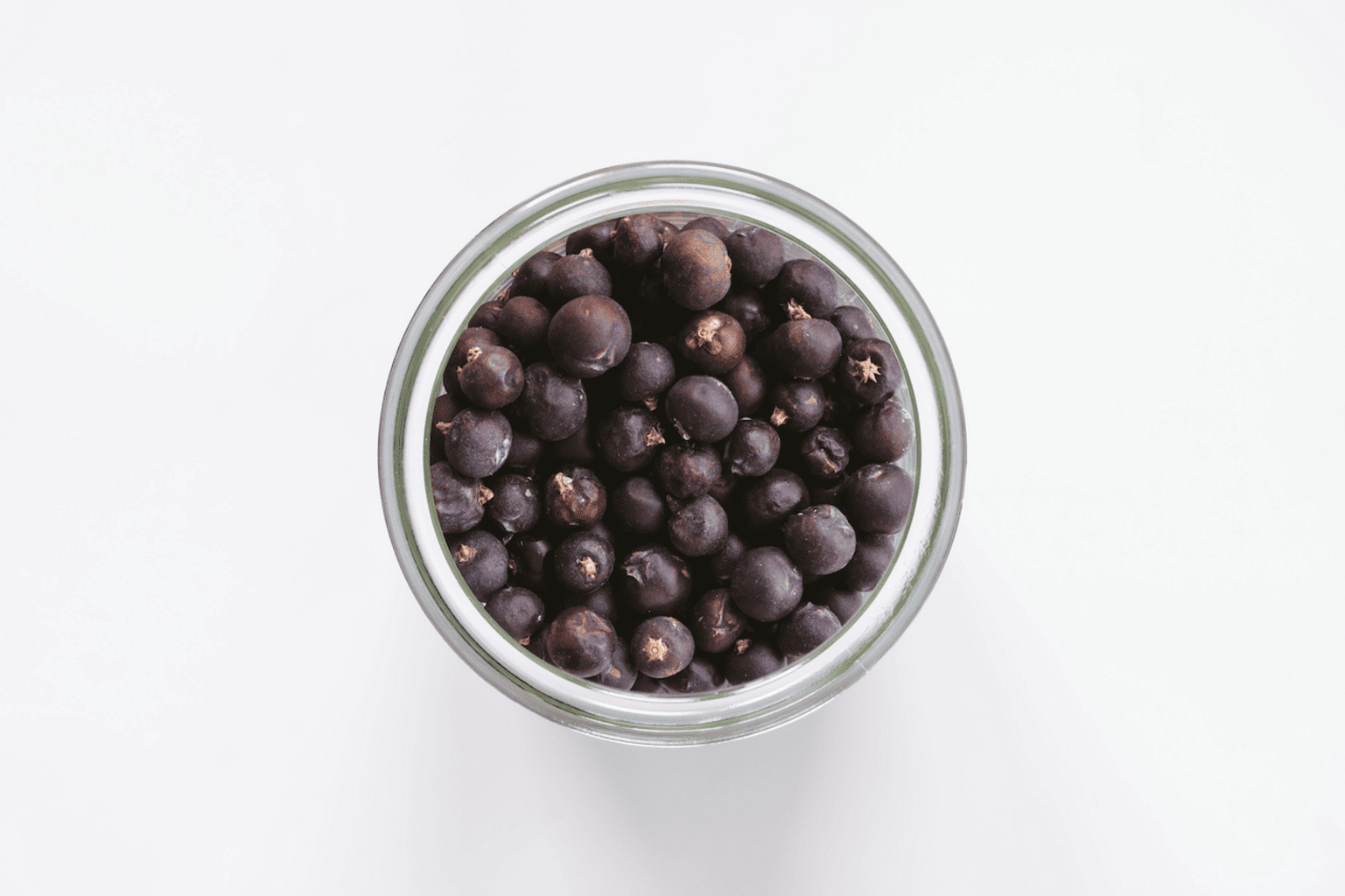Juniper berries

Recommendations
Use juniper berries whole or crushed. Add to meat and cabbage dishes as well as apple and pear compotes or preserves.
-
Allergens
Absent, except for cross-contamination.
May contain traces of sesame, celery, mustard, soy. - Origin France
- Storage / Use In a cool, dark, dry place.
Olivier Rœllinger's words
Juniper is indispensable when it comes to seasoning game birds, as well as squab, Guinea hen, and duck. We enjoy it in sauerkraut and all types of cabbage dishes.
I like to add a few juniper berries to my court-bouillon broths as well as to the water used to cook rice. It is a noticeable component in our Poudre Gallo blend.
Story
Juniper berries grow on the juniper plant (juniperus communis) an evergreen shrub in the conifer family. The female juniper flowers mature into cone fruits or berries, which need to be aged one to three years. Juniper plants are native to Arctic zones and grow wild in Europe, North America, and North Africa.
Prehistoric humans discovered the multiple antiseptic properties of juniper berries. During Roman times, juniper was used to season meats and wines in place of pepper, which was exorbitantly priced at the time,. In German cuisine, juniper is used to season cured meats. The English have long turned to juniper to flavor their gin.
